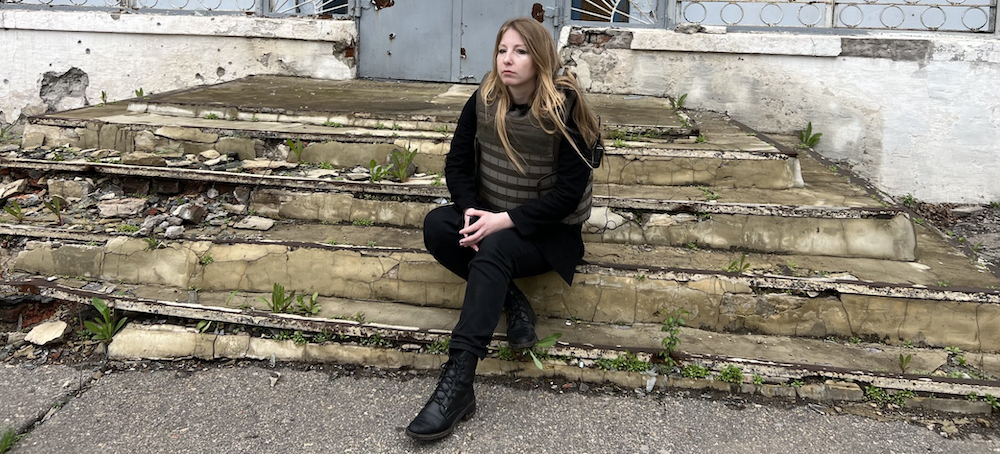
"Donnie transforms from self-proclaimed peacemaker to warmonger.”
ALSO SEE: U.S. Enters War Against Iran
The United States joined Israel in its war against the Islamic Republic of Iran on Saturday night as President Donald Trump ordered American bombers to destroy three key nuclear sites. Just before 8 p.m., Trump went on Truth Social to deliver the news:
"We have completed our very successful attack on the three Nuclear sites in Iran, including Fordow, Natanz, and Esfahan. All planes are now outside of Iran air space. A full payload of BOMBS was dropped on the primary site, Fordow. All planes are safely on their way home."
In a brief television address at 10 p.m., Trump declared the operation a “spectacular military success” and said the three sites had been “completely and totally obliterated.”
In recent days, polls have shown that a majority of the American people, including a majority of the President’s supporters, opposed going to war with Iran. By ordering these strikes, Trump acted without congressional approval and in contradiction to his campaign promise to avoid the kind of disasters experienced in Iraq, Libya, and Afghanistan.
I recently wrote a piece reviewing many of the dangers and possibilities that could follow an American bombing in Iran. After hearing the news, I immediately called one of the country’s most knowledgeable experts on Iran, Karim Sadjadpour. He is a scholar at the Carnegie Endowment for International Peace and worked as an analyst with the International Crisis Group in Tehran, from 2003 to 2005.
“I’m in shock,” Sadjadpour told me, about ten minutes after Trump’s announcement. “I’m sitting here watching this on CNN and trying to see the reaction on Persian-language Twitter.”
“This is unprecedented, dropping a thirty-thousand-pound bomb,” he continued.
“Anyone who has observed the last two decades of history in the Middle East would think hard about unleashing such an attack. You would want to think several steps ahead, and there is no evidence that the President has done that. His tweet and his public comments have given the impression that this is the end of war and the commencement of peace, but I suspect the Iranians think differently. They have a program on which they have spent hundreds of billions of dollars. The regime—perhaps not the people, but the regime—takes pride in that and now it is destroyed. No dictatorship wants to look emasculated and humiliated in the eyes of its own people.”
The question now is how Iran will respond. “If the Ayatollah [Ali Khamenei] responds weakly, he loses face,” Sadjadpour said. “If he responds too strongly, he could lose his head.”
“A lot of the options that they have for retaliation are the strategic equivalent of a suicide bombing,” he went on. “They can do enormous damage to our embassies. They might mine the Strait of Hormuz. They can continue missile barrages against Israel. They can attempt to do real damage to the world economy, though the regime might not survive the blowback.”
In the past couple of weeks, Israeli intelligence and bomber pilots have wiped out much of the upper echelons of the Iranian security establishment, along with the country’s top nuclear scientists. The Islamic Revolutionary Guard Corps is still in place, however, and, according to numerous analyses, they are likely to fill any power vacuum, at least in the short term. But the truth is, Sadjadpour said, the events of the coming days and months will be hard to predict.
Will the Israelis or Americans ever come forward with hard, convincing evidence about the Iranian nuclear threat and its timing? Not for the first time, Benjamin Netanyahu asserted that the threat was imminent and acted on it, and yet he did not provide the public with clear evidence of Iran being close to obtaining a nuclear weapon. Nor did Trump. Israel and the United States have now set back Iran’s nuclear program as never before. And yet, if this regime survives, it could well make a secret effort in the future to produce or obtain an atomic weapon as deterrence against a repeat of the strikes that have just taken place.
“Will we look back and say this prevented an Iranian bomb or insured one?” Sadjadpour said. “Similarly, have we hastened the demise of the regime, or have we entrenched it? The modern history of the Middle East does not give favorable answers to these questions. Iran is in a unique situation. It’s plausible that the Revolutionary Guard commanders will look at the Supreme Leader, Khamenei, and say, ‘You have led us to ruin. We have been the most sanctioned and isolated country in the world, and now your nuclear program is destroyed and we are humiliated. It is time to move aside.’ ”
Khamenei is eighty-six, and has been in power since 1989. “He’s one of the longest-serving dictators in the world—you don’t get to be that by being a gambler,” Sadjadpour said. “He has instincts for survival but also instincts of defiance. Right now, his survival instincts and his defiance instincts are in tension. Imagine it: You are eighty-six with the physical and, perhaps, cognitive limits that come with that. You have limited bandwidth, but now you are meant to lead a war against the U.S., the world’s biggest superpower, and Israel, the region’s biggest military power, and you are doing it from a bunker. It is hard to see how the outcome can be positive for him.
“But, as we have learned too often in history, military success doesn’t always translate to political success. In my opinion—and maybe history will view it differently—so much that we do now as a nation is not a reflection of national deliberation or national interest. It is the impulse of one man. Trump came to office believing his mere presence would resolve world conflicts in twenty-four hours: Russia-Ukraine, Israel-Palestine. When Trump saw that he wasn’t successful, he had a great sense of urgency to come to a resolution in Iran. The combination of Netanyahu’s persistence and Khamenei’s defiance transformed Trump from a self-proclaimed peacemaker to a warmonger.”
In Saudi Arabia last month, Trump delivered an extraordinary speech that was highly critical of military interventions and nation-building adventures in the Middle East. “In the end, the so-called nation builders wrecked far more nations than they built,” Trump said. “And the interventionalists were intervening in complex societies that they did not even understand.”
During his speech, Trump seemed to draw a sharp distinction between himself and Republican predecessors such as George W. Bush, saying, “In recent years, far too many American Presidents have been afflicted with the notion that it’s our job to look into the souls of foreign leaders and use U.S. policy to dispense justice for their sins.” It is this kind of rhetoric that has won the approval of the isolationist strain of the maga movement and the Republican Party, including Steve Bannon and Tucker Carlson. Trump’s action in Iran Saturday night will inevitably alienate that faction as it earns praise from the likes of Fox News commentators such as Mark Levin and Sean Hannity, as well as Senators Ted Cruz and Lindsey Graham.
“Trump came to the Presidency with a Nixon-goes-to-China idea where Iran is concerned,” Sadjadpour said. “He wanted to build hotels there. And now he has dropped a thirty-thousand-pound bomb. He was frustrated that he hadn’t solved Gaza or Ukraine. The nuclear deal that Obama worked out with Iran and the rest, the J.C.P.O.A., was a two-year-long negotiation. He had no patience for that. And when Khamenei wasn’t agreeing to his terms very quickly, and when he encountered Netanyahu’s persistence and Khamenei’s resistance, he changed. The morning after the Israeli invasion, Trump wanted to associate himself with that success. He didn’t want Netanyahu alone to have a Churchill moment. He wants to be remembered for destroying nuclear facilities. But it means the next President will be faced with the same challenge.”
Although it is true that many Iranians despise the ruling theocracy, and though it is true that the Iranian people are among the most pro-American in the region, there is no reason to be confident that even the most restive will welcome foreign intervention. And it is unlikely, at least in the short term, that what will follow this regime, if it falls, will be a secular liberal democracy with civil rights for women and religious minorities. Regime change is rarely, if ever, regarded as a gift. The C.I.A. and British oil companies helped the Army topple Mohammad Mosaddegh, a popular Iranian Prime Minister, in 1953, and that coup is still part of the political conversation in Iran, Sadjadpour said.
“From World War Two to 2010, more than half of authoritarian regimes that fell were followed by other authoritarian regimes, and Iran, in 1979, is just one of many,” he said. “Only a quarter of them led to democracy. And that number was lower if it was triggered by violence or foreign military invasion. We should be very wary of the idea that what happened tonight will somehow automatically lead to a democratic Persian Spring.”




















